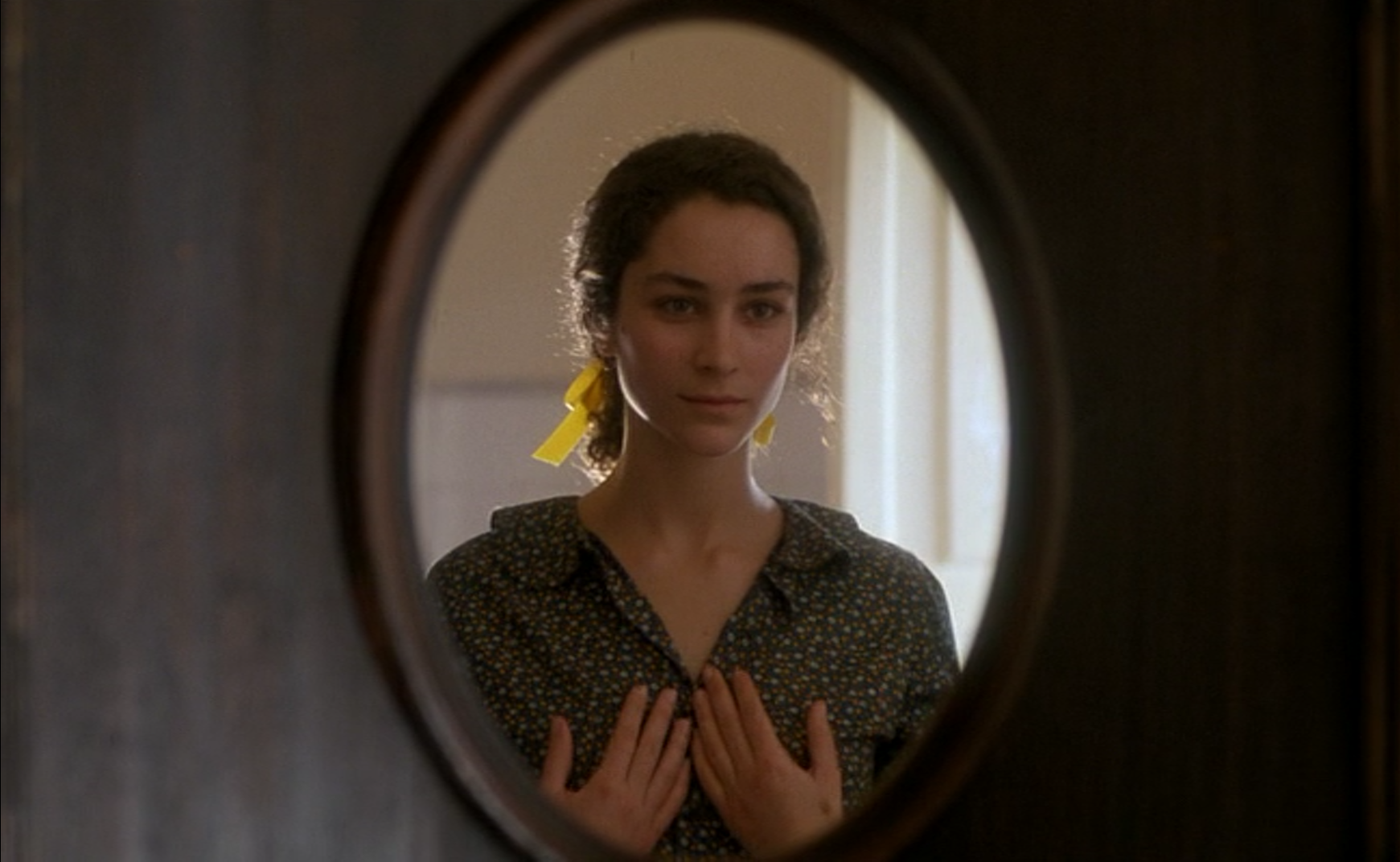Interview with a Vampire
Pierre Hodgson interviews João César Monteiro for Cahiers du Cinéma
Pierre Hodgson interviews João César Monteiro for Cahiers du Cinéma

Excerpts
[…]
And the character? When was it born?
My character, João de Deus, was born for the Recollections of the Yellow House, in 1989.
And did you know immediately that it was you who should represent him?
I did. And I became a bit surprised of my “screen” reality. I discovered a number of things, difficult to tell. I had, however, at the time of Recollections of the Yellow House, come to think of other actors for the role, for example Roberto Benigni… And it was Otar Iosseliani who advised me to represent the role myself. It was a great idea because I’m not seeing anyone else who has the same relationship I have with the things, with the objects. For example, certain ways of looking. I have an irreplaceable gaze, which is mine.
Do you get the feeling that, by being an actor in your films, you belong to a certain family of filmmakers, that of Chaplin, Keaton, Welles, Godard, Truffaut?
I would really like to belong to a family, because, at the moment I don’t have any. In any case, I’ve always had the desire to belong to a cinematographic family. And it could well have been that of people who have filmed themselves. This family would be more of Buster Keaton, Chaplin, Jerry Lewis, Totó… A burlesque idea. But also that of Jean-Marie Straub and Danièle Huillet and of the Swiss that is Victor Erice (a play on words that JCM was very fond of. In the original: “et le Suisse. C’est Victor Erice”). I’m not a humorist, I believe in love, in senses of humor, in the fluids that inhabit the body. I also believe in a certain irony. Above all, I have a sensation of belonging to a very popular community, of being mixed in…
Lisboner?
Lisboner by chance because it’s there that I live.
Do you believe, then, like Chaplin and Keaton, that by filming yourself you can give hope to the people. Is that it?
Certainly. By filming ourselves we discover ourselves. It works like a process of self-gnosis. But there are very big differences between the João de Deus of Recollections of the Yellow House and the one of God’s Comedy. I call God’s Comedy the erotic stage. Erotically, it is a very infantile film. The representation of the characters is very infantile, very immature. Indeed, I don’t know who directed who. Above all in the scenes with Joaninha, the butcher’s daughter, there is quite a profound complicity. Which makes me not know if it was me or her who directed the scenes that we appeared in together.
This sensation that the direction of the film escapes you, would it be because you’re in front of the camera?
Yes. And this is fantastic.
Can you explain how João de Deus changed between Recollections of the Yellow House and God’s Comedy?
In the Recollections of the Yellow House he is a faker. His love for the policewoman is a game, a lie. In that film João de Deus is a very cold character. Very much removed from the others. He could’ve loved Mimi. Maybe he does. But these things pass by him. Even with his mother. He’s someone who’s very self-centered. In God’s Comedy he is a more serious character. More grave and more vulnerable. And more honest in relation to others. And for this he can love. But this will be seen in the next film. In any way he is now a more human character, more interesting.
[…]
God’s Comedy is also a political film. It’s anticlerical, but it’s also scandalous on the point of view of the mores. If it premiered in England or in the United States, it will provoke a scandal.
As in Lisbon. It’s a film that will divide. That’s good. As long as they don’t beat me in the middle of the street… I can be fierce with the quill, but with fists I’m an illiterate. I wanted to make a political film in the Greek sense, an intervention in public life. […] Judite represents established order. The film is a film against established order. It is necessary to found a new society. It’s a concern that concerns everyone. Either we position ourselves on the side of history, like the characters of Becket, or we commit to doing something. […]
Why is your film dedicated to Serge Daney?
I met him in Taormina. We saw each other every day for a week. We talked a lot. He taught me a lot. Afterwards we met in Paris. Whenever I called him he would always tell me: “I’m very busy but for you I have half an hour”, and gave me three hours of his time. We talked of cinema and other things. He gave me advice. He thought I was a great filmmaker. I used to say to him: “No. What does that mean? Success is for politicians”. He thought I was a masochist. I don’t hate making films, but that doesn’t bring me any particular happiness. But if I’m still not in agony yet, I’m a bit like Flaubert who, on his deathbed, said: “The bitch Bovary, she lives and I’m here almost…”
Cahiers du Cinéma no. 499, February 1996 [published in full in the catalogue João César Monteiro, ed Cinemateca Portuguesa, 2005]